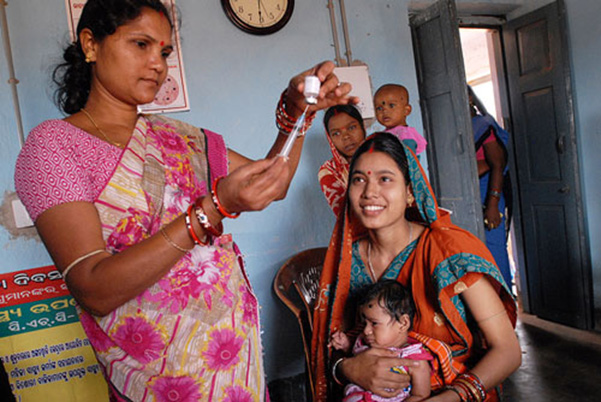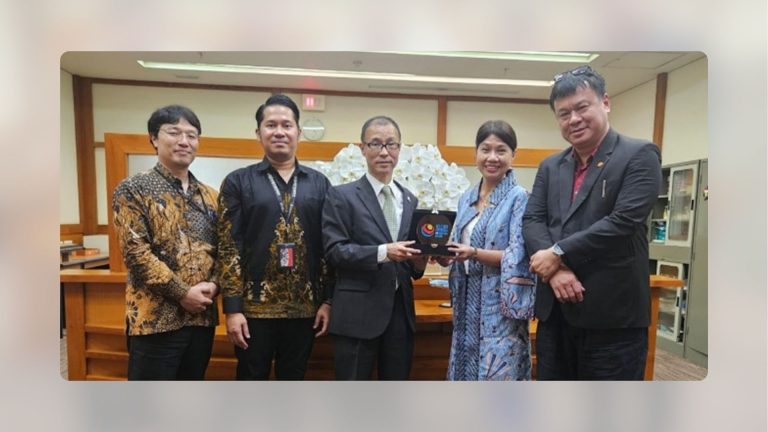CHALLENGE
Local government of Madhya Pradesh (MP), as other local governments in India, faced challenges in implementing widespread vaccines coverage. Low awareness, cultural challenges, and logistical issues (lack of stock visibility, human resources management, poor record keeping of stock and sharing across levels) were major factors. The local government of MP, with the support from national level government through the Ministry of Health and Family Welfare’s Universal Immunisation Programme and the United Nations Development Programme (UNDP), optimised human resources capacity and utilised technology to tackle the challenges.
INNOVATION
The support led to the development of eVIN. Electronic Vaccine Intelligence Network (eVIN) is a smart mobile application for digitising vaccine logistics. It is developed as an online real-time vaccine logistics management system. eVIN provides complete information on the vaccines stocks and flows through data entered by the healthcare workers (called as vaccines/cold chain handlers) and temperature recorded by SIM-enabled temperature loggers attached to cold chain equipment. Workers fed data on a daily basis to be circulated at division, state, and national level; while temperature was recorded every ten minutes and updated at an interval of sixty minutes on the server via GPRS. In case of temperature breach, the logger alarmed and sent email and SMS alerts to responsible technicians and managers, enabling them to make necessary action. eVIN, thus, enabled healthcare workers to effectively manage vaccine logistics and gain real-time information on availability of vaccines, important information for successful vaccine coverage.
At the frontline, the healthcare workers were trained technically and engaged in a campaign to face challenges from local people (who tend to avoid vaccines) and access to difficult terrains (particularly in MP are tribal dominated Alirajpur and Jhabua districts). Among the many innovations made in MP to encourage local people to take the vaccine, using the vaccine analogy, were the use of henna on women’s hands and rangoli outside homes to signify protection.
IMPACT
More than 200,000 children and approximately 50,000 pregnant women were covered. The number was achieved by the works of 24,218 field workers and 10,050 supervisors. Local government of MP targeted 100 per cent immunisation coverage; and this programme recorded 75 per cent of coverage in the first year.
The success of the practice has earned MP an award at the National Summit on Good and Replicable Practices and Innovations in the Public Healthcare System. This has also allowed MP to become a role model of the practice that has been encouraged to be replicated in other areas in India.











